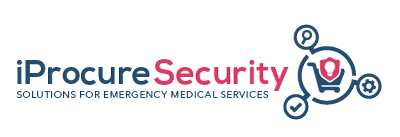480Terms
Help to improve our database
We are continuously collecting common terms used by the Emergency Medical Services practitioners across Europe. Help us improve our content and fill out the online form. If you are not able to find what you are looking for, please let us know by sending us a message through our contact page.
Your feedback is important for us and it will be fed into our Database for the EMS glossary.
Add new EMS termTo unify the communication and knowledge exchange between the emergency medical teams across Europe iProcureSecurity seeks to translate the identified EMS terms in all consortium languages.
That is why the project encourages everyone willing to contribute, to suggest and add missing terminology translation.
Add new translationiProcureSecurity Glossary
The use of research and innovation evidence by researchers, policymakers, implementers or practitioners to inform policy or practice.
Health care discipline that specializes in the promotion of optimum cardiopulmonary function and health and wellness
Time interval between the emergency call and the EMS arrival on the scene.
Restorative therapy means and includes physical, occupational, speech therapy, psychiatric and psychological services that are planned and provided by a licensed or certified therapist.
Usually limits the request of tenders to a selected number of suppliers
Is a term that covers more than just IPR rights. Results includes any tangible or intangible output, such as data, knowledge or information, that is generated in the PCP (meaning in activities described in the PCP contracts), whatever its form or nature, whether or not it can be protected, as well as any rights attached to it, including IPRs (foreground IPRs). Note that results equals foreground and, therefore, do not include background (generated before the PCP) or side ground (generated during the timespan of the PCP but not in the activities covered by the PCP). In PCP, procurers do not reserve the R&D results exclusively for their own use. Each R&D provider that generates results in the PCP owns the IPRs attached to its own results (together with the responsibility and the costs for protecting those IPRs). The public procurer obtains license free rights to use the R&D results for its own use, and the right to require participating R&D providers to grant non-exclusive licenses to third parties to exploit the results under fair and reasonable market conditions without any right to sublicense. A call back provision ensures that if an R&D provider fails to commercially exploit the results within a given period after the PCP as identified in the PCP contract (minimum 4 years in the case of Horizon 2020 funded PCP projects) or uses the results to the detriment of the public interest (including security interests), it shall transfer any ownership of results to the procurers upon the request thereby. As the PCP procurement does not procure the generation of background or side ground, the procurers obtain access to background and side ground of R&D providers under fair and reasonable market conditions, except for background needed by the procurers to implement their own tasks during the PCP (this is obtained license free). Procurers also retain the right to publish information – after consultation with each participating R&D provider – public summaries of the results of the PCP, including information about key R&D results attained and lessons learnt by the procurers during the PCP (e.g. on the feasibility of the explored solution approaches to meet the procurers’ requirements and lessons learnt for potential future deployment of solutions). Details should not be disclosed that would hinder application of the law, would be contrary to the public interest, would harm the legitimate business interests of the R&D providers involved in the PCP (e.g. regarding IPR protected specificities of their individual solution approaches) or would distort fair competition between the participating R&D providers or others on the market. For the public procurers, this approach safeguards a future competitive supply chain and cheaper prices for the R&D and resulting products as the participating R&D providers can commercialise the results of the PCP – including the resell of the developed solutions – to wider markets.
Designed to reduce the incidence of internal injuries, it is a protective device for chest compressions conceived to improve the quality of cardiac massage. The CPR board helps in patient repositioning while applying first aid.
PCP is an R&D services contract in which the public procurer shares the risks and the benefits related to the IPRs with the R&D provider. The public procurer should ensure that the PCP contracts with R&D providers contain a financial compensation according to market conditions compared to exclusive development price for assigning IPR ownership rights to participating R&D providers, in order for the PCP call for tender not to involve State aid. The financial compensation compared to exclusive development price should reflect the market value of the benefits received and the risks assumed by the participating R&D provider. The market price of the benefits should reflect the commercialisation opportunities opened up by the IPRs to the R&D provider. The associated risks assumed by the R&D provider comprise, for instance, the cost carried by the R&D provider for maintaining the IPRs and commercialising the products. If the price paid by the public procurer does not reflect the benefits received and the risks assumed by the participating R&D providers, the PCP contract will normally be regarded as State aid. According to the new 2014 State aid framework for research, development and innovation a ‘market price’ is presumed whenever the PCP is conducted in compliance with several cumulative conditions.
Refers to the approach in PCP where procurers share with suppliers, at market price, the benefits and risks related to the IPRs resulting from the R&D.
The unintended collision of one motor vehicle with another, a stationary object, or person, resulting in injuries, death and/or loss of property

